Filter by

Environmental liberation education: diversity, mindfulness, and sustainabilit…
Environmental Liberation Education offers an easy-to-use, culturally responsive, and student-centered teaching approach to academic engagement and systemic change. It explains social-emotional tools and inquiry practices to discuss, reflect, and act for superdiverse student success, happiness, and global citizenship in a challenging, biodiverse world. The book presents three Transformative T…
- Edition
- -
- ISBN/ISSN
- 9781003364757
- Collation
- -
- Series Title
- -
- Call Number
- 370 RUB e
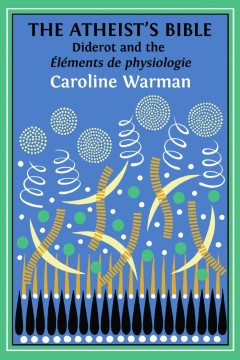
The atheist's bible : diderot's "Éléments de physiologie"
‘Love is harder to explain than hunger, for a piece of fruit does not feel the desire to be eaten’: Denis Diderot’s Éléments de physiologie presents a world in flux, turning on the relationship between man, matter and mind. In this late work, Diderot delves playfully into the relationship between bodily sensation, emotion and perception, and asks his readers what it means to be human in…
- Edition
- -
- ISBN/ISSN
- 9781783748983
- Collation
- ix, 421p. : ill.
- Series Title
- -
- Call Number
- 146.3 WAR t
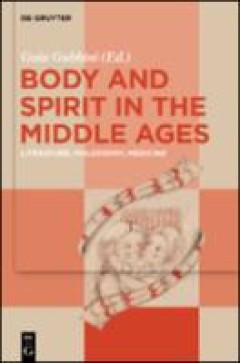
Body and spirit in the Middle Ages : literature, philosophy, medicine
A crucial question throughout the Middle Ages, the relationship between body and spirit cannot be understood without an interdisciplinary approach – combining literature, philosophy and medicine. Gathering contributions by leading international scholars from these disciplines, the collected volume explores themes such as lovesickness, the five senses, memory and passions, in order to shed new…
- Edition
- -
- ISBN/ISSN
- 9783110615937
- Collation
- vi, 290. : ill.
- Series Title
- -
- Call Number
- 128.20902 GUB b
The practical origins of ideas : genealogy as conceptual reverse-engineering
Why did such highly abstract ideas as truth, knowledge, or justice become so important to us? What was the point of coming to think in these terms? In The Practical Origins of Ideas, Matthieu Queloz presents a philosophical method designed to answer such questions: the method of pragmatic genealogy. Pragmatic genealogies are partly fictional, partly historical narratives exploring what might ha…
- Edition
- -
- ISBN/ISSN
- 9780198868705
- Collation
- xi, 275 p.
- Series Title
- -
- Call Number
- 121.4 QUE t
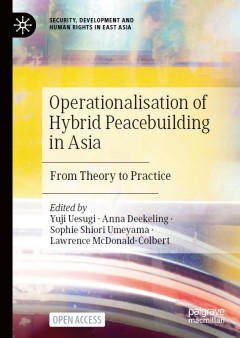
Operationalisation of hybrid peacebuilding in Asia : from theory to practice
This open access book explores common critiques in the literature of hybrid peacebuilding, especially the lack of connection between hybridity in theory and practice. Through using a complexity-informed framework, the foundation for introducing the mid-space actor typology is established. Mid-space actors as insider-partial mediators are perceived to be vital agents for peace processes in confl…
- Edition
- -
- ISBN/ISSN
- 9783030677589
- Collation
- xix, 203p. : ill.
- Series Title
- -
- Call Number
- 327.17209596 OPE o
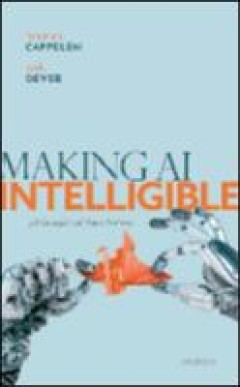
Making ai intelligible: philosophical foundations
Can humans and artificial intelligences share concepts and communicate? One aim of Making AI Intelligible is to show that philosophical work on the metaphysics of meaning can help answer these questions. Cappelen and Dever use the externalist tradition in philosophy of to create models of how AIs and humans can understand each other. In doing so, they also show ways in which that philosophical …
- Edition
- 1.
- ISBN/ISSN
- 9780192894724
- Collation
- viii, 175p.
- Series Title
- -
- Call Number
- 004.019 CAP m

Surgery and selfhood in early modern England : altered bodies and contexts of…
Offering an innovative perspective on early modern debates concerning embodiment, Alanna Skuse examines diverse kinds of surgical alteration, from mastectomy to castration, and amputation to facial reconstruction. Body-altering surgeries had profound socio-economic and philosophical consequences. They reached beyond the physical self, and prompted early modern authors to develop searching quest…
- Edition
- -
- ISBN/ISSN
- 9781108919395
- Collation
- vii, 201p. : ill.
- Series Title
- -
- Call Number
- 617.094 SKU s
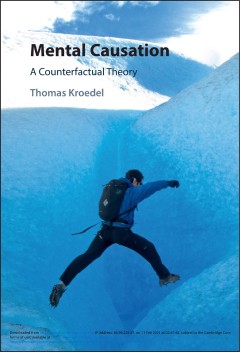
Mental causation : a counterfactual theory
Our minds have physical effects. This happens, for instance, when we move our bodies when we act. How is this possible? Thomas Kroedel defends an account of mental causation in terms of difference-making: if our minds had been different, the physical world would have been different; therefore, the mind causes events in the physical world. His account not only explains how the mind has physical …
- Edition
- -
- ISBN/ISSN
- 9781108762717
- Collation
- x, 224p. : ill.
- Series Title
- -
- Call Number
- 128.2 KRO m
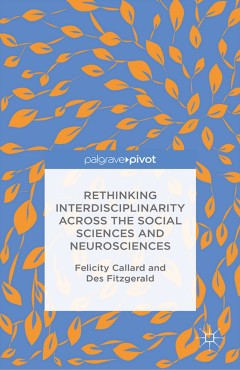
Rethinking interdisciplinarity across the social sciences and neurosciences
This book offers a provocative account of interdisciplinary research across the neurosciences, social sciences and humanities. Setting itself against standard accounts of interdisciplinary 'integration,' and rooting itself in the authors' own experiences, the book establishes a radical agenda for collaboration across these disciplines. Rethinking Interdisciplinarity does not merely advocate int…
- Edition
- -
- ISBN/ISSN
- 9781137407962
- Collation
- x, 157p. : ill.
- Series Title
- -
- Call Number
- 001 CAL r
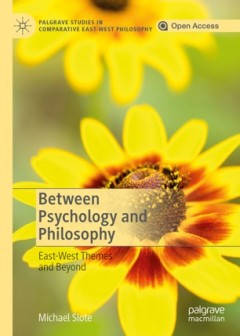
Between psychology and philosophy : east-west themes and beyond
This open access book discusses a variety of important but unprecedented ways in which psychology can be useful to philosophy. The early chapters illustrate this theme via comparisons between Chinese and Western philosophy. It is argued that the Chinese notion of a heart-mind is superior to the Western concept of mind, but then, more even-handedly, the relative strengths and weaknesses of Chine…
- Edition
- -
- ISBN/ISSN
- 9783030225032
- Collation
- x, 215p. : ill.
- Series Title
- -
- Call Number
- 101 SLO b
 Computer Science, Information & General Works
Computer Science, Information & General Works  Philosophy & Psychology
Philosophy & Psychology  Religion
Religion  Social Sciences
Social Sciences  Language
Language  Pure Science
Pure Science  Applied Sciences
Applied Sciences  Art & Recreation
Art & Recreation  Literature
Literature  History & Geography
History & Geography